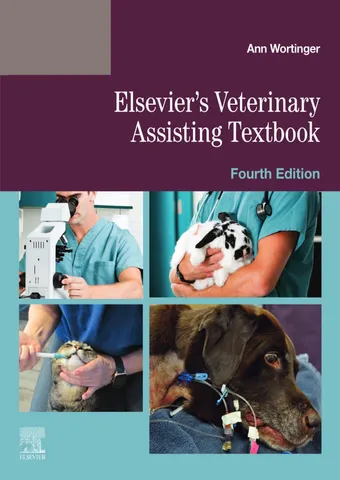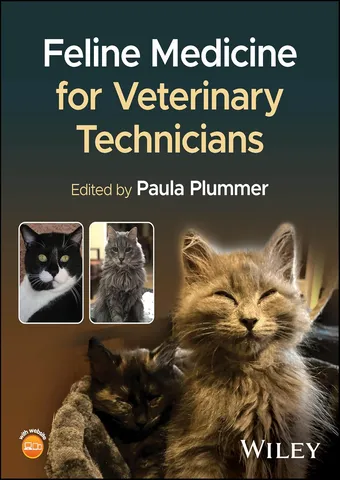Welcome to Veterinary Discussions, This is Dr. Kashif Amin, I hope your weekend spent well. Today I want to tell you about online education and how you can get online education?
Define The Online Education?
Online Education is also called E-education or Online Learning. Online education is a manageable instructional transfer method that comprises any sort of learning, education, knowledge, training, information, awareness about anything that you take place through the Internet. Online learning provides tutors a chance to communicate with students who may not be capable to join in regular classroom education and encourages students who want to something and want to achieve something bigger than their desire while staying at home. This is a prominent way for those who previously have time dedications with family and job. Online courses are scheduled dependent and support you to log into your online class at a time that works best for you, as opposed to having to take a lecture at a particular time and particular place.

Online Education is also called e-education is commonly prevailing worldwide.
According to the survey, the number of students searching for online study and online degrees in most departments is large and the number is enhancing day by day. Colleges and universities that support online learning are also increasing because of an increase in the number of students and the shortage of resources. Students seeking knowledge through the online method must be particular to guarantee that their coursework is completed through a well-reputed college or university in the United States of America or any other developed country.
Define Traditional Education:
Traditional education is defined as a teacher-centered transfer of instruction to students who are the receivers of information and students are present at that location during the transfer of information. Traditional institutions usually stress basic educational exercises and hectic for modern world students and expect the power of institutional learning in the heart subjects of medicine, reading, writing, science, and other studies. Government institutions usually heed this pedagogical model, although charter schools can give a more manageable educational program. Other alternatives to the traditional government institution include independent institutions that operate outside the government school administration, religious schools, and online learning. Since many circumstances come into action when deciding an institution, it’s smart to look not only at the educational program but also at the cultural environment and availability of maintenance services. Traditional classes are the most popular nationally and can contribute quality instruction along with the advantages of federal- and state-mandated laws.
Types of Online Education
There are different types of online learning all are explained below;
- Self Motivated Education
- Online College or school Learning
- Supplemental Online Education
- Educational Apps/Programs
- Web-Enhanced Learning
- Face-To-Face Learning
- Hybrid Course
- Fixed Time Online Courses
Self Motivated Education:
One of the best online education is self-motivated education. If learners are individually motivated or just interested, they can explore the Internet for an extensive number of educational information, this information related to their work, job or interest-related. Different Search engines and websites such as YouTube give collection articles, videos, and images associated with almost all the information related to anything. Sites such as Khan Academy provides a free collection of programs for all degree levels. Most of you people familiar with Coursera have partnered with influencing institutions in the United States of America and around the globe to contribute online education covering a lot number of subjects.
online education platforms for self-motivated education are given below;
Scholars looking to convert to extra knowledgeable in an appropriate field are prepared to use the large collection of free online resources for experimentation and education. Care should be used, though, as not all websites and references are valid or trustworthy.
Online College or school Learning:
Massive Open Online Courses (MOOCs) are classes given on a considerable level and that is not restricted to enrollment in a selective institution. People choose to use these either for a profession or educational interest and the courses are not significantly appropriate towards earning a diploma.
Whether it is an adult watching to further their knowledge or a recent high school graduate wanting docility in class schedule, registering in an online college allows a student to earn a degree without the limitations of traditional campus learning. With the popularity of online courses today, just about any degree is allowed while still being able to attend reliable and well-known institutes.
Best Online Colleges and institutions are given below;
- PENN STATE WORLD CAMPUS
- EMBRY-RIDDLE AERONAUTICAL UNIVERSITY
- ARIZONA STATE UNIVERSITY–ASU ONLINE
- UNIVERSITY OF FLORIDA
- UNIVERSITY OF ILLINOIS AT CHICAGO
- UNIVERSITY OF CENTRAL FLORIDA
- COLORADO STATE UNIVERSITY–GLOBAL CAMPUS
- UNIVERSITY OF ILLINOIS–SPRINGFIELD
- CUNY SCHOOL OF PROFESSIONAL STUDIES
- OREGON STATE UNIVERSITY–OSU E CAMPUS
Supplemental Online Education:
What is supplemental education?
From preschool to graduate school, students can complete their training through online resources. Selective online courses allow students who wish to extend their learning in an appropriate field to study ahead of what is offered in their current institution. Additional online courses also help struggling students with a particular subject to receiving additional education and assistance.
Even beyond the field of education, anyone looking to become an expert in the field, for the sake of learning or to improve in their profession, can greatly help from many additional online training offers.
Online certifications are also available for various professions, including the most popular such as nursing, information technology, web design, and business administration.
Mobile Applications For Online Learning:
There are countless applications that allow for additional online learning while providing a fun experience for learners. Even adults can get an advantage from learning applications covering a variety of topics ranging from astronomy to global languages.
The mobility of these learning systems makes it possible to adapt to the lifestyle of each student and can be used anytime and anywhere.
Web-Enhanced Learning:
Optimized course for the Web, the course meets as a traditional course, in class, with an instructor at the scheduled day, time and place. The time of the place is not replaced, but the components of your course will be accessible to you 24/24 and 7/7 using a Learning Management System like Canvas. Online projects differ depending on the instructor and course specifications. The instructor will ideally explain expectations from the first day of class and instructors will have the possibility to use a learning management system, as they do with any other technology.
Face-To-Face Learning:
A conventional classroom atmosphere where learners and instructors meet synchronously in the same room; also called “on the ground” or “on campus” teaching.
Blended Learning:
In “hybrid” classes, a significant amount of the course learning activity has been moved online, making it possible to reduce the amount of time spent in the classroom. Traditional face-to-face instruction is reduced but not eliminated. The “hybrid” course model is also referred to as a “blended course.”
In the “hybrid” classes, much of the learning activity of the course has been put online, which reduces the time spent in class. Traditional face-to-face instruction is decreased but not excluded. The “hybrid” plan is also called the “Blended course“.
Fixed Time Online Education:
The most common type of online learning today is fixed-term training. As the headline suggests, these programs are surely online, but students must log on to their online training site at a particular time. Although completely online, the format remains synchronous, as mandatory live chat is usually needed.
References for Online Education:
Read Books: Tasks for the Veterinary Assistant PDF







[…] are different types of online learning all are explained […]